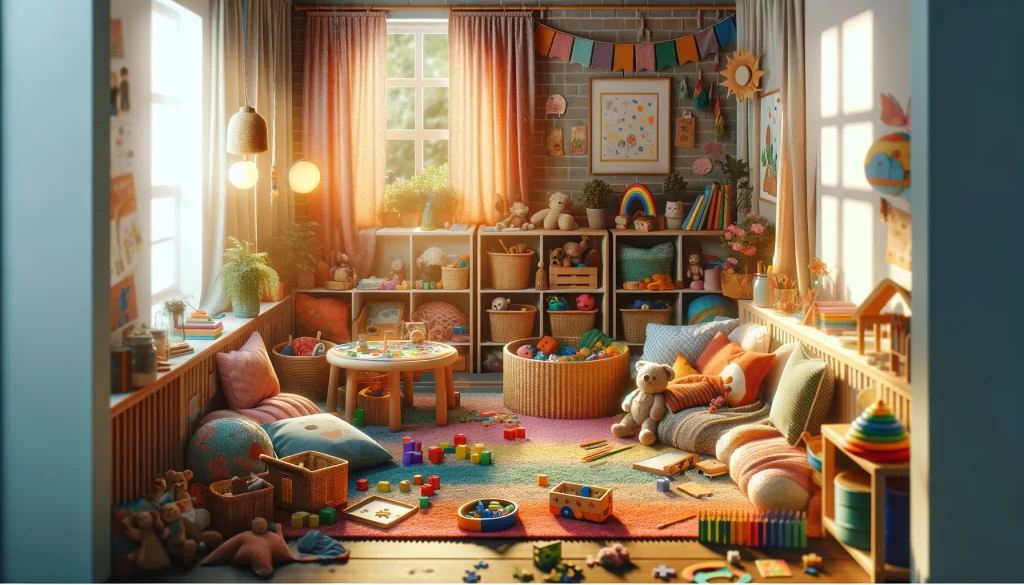Finding engaging and educational activities for children with autism that can be done indoors poses a unique challenge for parents. Such activities need to hold their attention and support their development meaningfully.
This guide from The Mom Kind dives into a curated list of indoor activities designed to enrich your child’s sensory experience, enhance their communication abilities, and ignite their creativity. That way, you can ensure learning and play go hand in hand.
Transforming Cooking into a Sensory Adventure
Cooking transcends its routine nature to become an exploratory sensory activity for children with autism. It’s an invitation to engage with various textures, aromas, and tastes, turning the kitchen into a laboratory of sensory discovery. By involving your child in simple tasks like measuring, mixing, and decorating, you’re enhancing their fine motor skills and introducing basic math concepts in a fun, tactile way.
Journaling as a Tool for Expression and Emotional Growth
Journaling offers a powerful outlet for children with autism to express their thoughts and feelings. Adaptability is key here; children can use words, drawings, or both to communicate their inner world. Visual prompts or specific topics can help guide their expression, improving communication skills and emotional understanding.
Dramatic Play for Social Skills and Creativity
Dramatic play stands out as a dynamic method for nurturing social skills and creativity in children with autism. By simulating real-life scenarios or embarking on imaginative adventures, children are offered a safe space to experiment with social interactions, understand emotional cues, and express themselves verbally. The use of props and costumes can further enrich these play sessions, making abstract concepts more tangible and engaging.
Artistic Endeavors and Digital Preservation
Creating art with your child is a powerful way to deepen your connection and give them a platform to express themselves through various mediums. When their masterpieces are finished, consider digitizing their artwork with a mobile scanning app to immortalize their creative expressions. You can use this to scan a document or artwork, transforming it into a digital format that celebrates their creativity and motivates them to delve further into their artistic journey.

Sensory Activities for Tactile and Visual Exploration
Sensory activities are indispensable for children with autism, providing them with opportunities to engage deeply with their environment. Activities such as finger painting, exploring sensory bins, and participating in scavenger hunts cater to their tactile and visual exploration needs.
Making slime, for example, offers a unique sensory-friendly crafting experience that is both stimulating and soothing. These activities are crucial for sensory integration, helping children understand and respond to sensory stimuli in their surroundings and enhancing their sensory processing and emotional regulation.
Trivia Games to Challenge and Educate
Trivia games present a fun and engaging way to challenge your child’s knowledge and memory. Tailoring these games to their interests and adjusting the difficulty level ensures learning remains a delightful experience. This interactive approach reinforces information retention and sparks curiosity and a desire to learn more about the world around them.
Role-Playing for Practical Life Skills
Role-playing extends the scope of dramatic play by focusing on real-life situations, providing autistic children a platform to practice and understand everyday interactions. Children can learn practical life skills in a controlled, familiar environment by acting out scenarios such as grocery shopping or doctor’s visits. This method allows for rehearsing social exchanges, communication strategies, and behavior in public settings.
Constructive Play with Building Toys
Engaging with building toys like LEGO or puzzles encourages creativity, critical thinking, and problem-solving skills. These activities offer a tangible sense of accomplishment and can be adapted to be more collaborative, allowing you and your child to work together toward a common goal.
Whether working on a joint project or allowing your child the freedom to create independently, these toys foster an understanding of spatial relationships, perseverance, and imaginative thinking. This lays a foundational block toward lifelong learning and development. We recommend you check out Autism Parenting Magazine
Summary
In weaving together these varied activities, parents create a rich tapestry of experiences that cater to their children with autism’s unique needs and interests. Each activity is a stepping stone toward greater sensory integration, enhanced communication, and a deeper understanding of the world. By focusing on the joy of discovery and the value of creativity, you can ensure your child remains engaged and educated indoors while feeling supported and understood in every aspect of their development.

